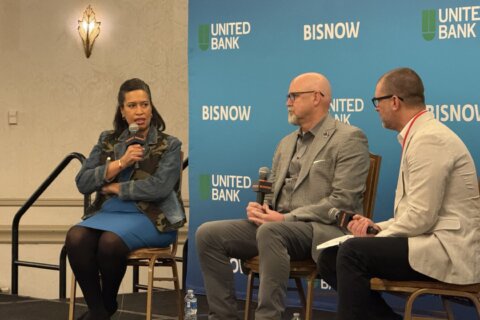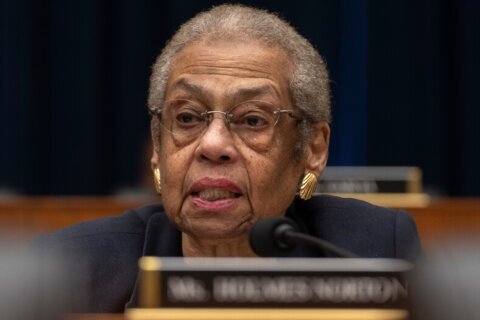Prices for baby formula are rising because of the nationwide shortage, and a bill has been introduced in the D.C. Council aimed at preventing price gouging.
“When I see formula prices in stores go up 30% or 40% or more, and when I see $200 cans of formula online, I’m outraged,” said Ward 1 Council member Brianne Nadeau.
During an online meeting on the baby formula shortage Monday evening, Nadeau said she introduced an emergency measure to combat price gouging to the council earlier in the day.
“My legislation would allow the attorney general to go after people who are charging unfairly high prices for formula. My hope is that we would see an immediate drop in prices and that anyone who has been stockpiling formula, hoping to see prices keep going up, will get the message that it’s time to sell or donate those products because we’re not going to let you take advantage of people’s desperation,” Nadeau said.
Nadeau said the emergency bill has broad support from council members and will be on the council’s June 7 agenda.
Also at the online meeting conducted by the Health Alliance Network and the Anacostia Coordinating Council, Dr. Nia Bodrick, a pediatrician at Children’s National Hospital, reminded parents not to dilute baby formula even when they’re running short of supply.
“When you dilute the formula, you can also dilute the levels of protein and minerals that are in the formula, and this can lead to very low sodium levels in the blood of babies and other kind of electrolyte disorders that can make them sick and cause them to be hospitalized,” Bodrick said.
She also warned against substitutions.
“Under the age of one, no cow’s milk, no goat’s milk, no plant-based milk like soy milk,” she said.
However, Bodrick recommended that parents of babies nearing 12 months, during the baby formula shortage, talk to the baby’s pediatrician about an early introduction of whole milk, time limited to one week.
Bodrick also said parents should not attempt to make their own formula because of the risk of contamination. And when using shared breast milk, rely only on breast milk from milk banks.








